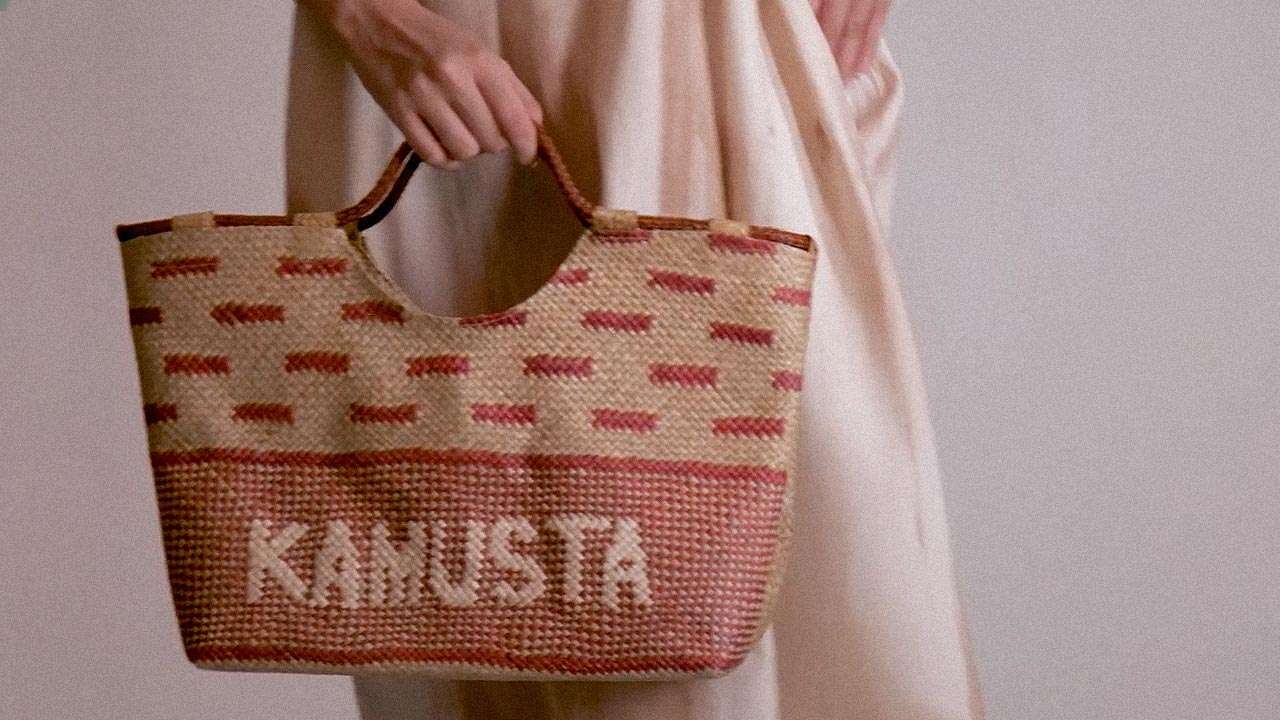POSTED Apr 06, 2022 - 01:27 PM
Meet these 3 young designers who specialize in sustainable RTW fashion
With so much clothing being produced annually, there is now a need to think about the ways the industry can minimize its impact
Humans consume around 80 billion pieces of clothing every year, which is 400 percent more than the amount consumed over the past two decades. To meet this demand, the fashion industry has to churn out new items in significantly shorter time frames—often using the traditional linear model of “take, make, and dispose” with less than one percent of clothes being recycled.
As of 2018, the industry accounts for about 10 percent of global carbon emissions, which is more than the emissions of maritime shipping and international flights combined.
If this business-as-usual approach continues, the fashion industry is expected to use about 26 percent of the world’s carbon budget by 2050 and resources such as fabric and water will likely become scarce. “We need a new textile economy in which clothes are designed differently, worn longer, and recycled and reused much more often,” sailor and environmental advocate Dame Ellen MacArthur told The Guardian.
Fortunately, the world has recently witnessed a slow but steady increase in awareness of ethical and sustainable fashion. Issues such as overconsumption of natural resources and subsequent waste have given rise to young designers trying to break into the space of sustainable fashion.
Rio Estuar
Rio Estuar graduated from De La Salle-College of Saint Benilde with a degree in fashion design and merchandising. She initially owned Kalye Rio, a fashion brand that produces street food-inspired clothing but eventually dropped it after realizing the amount of waste the fashion industry generates.
She then decided to establish RIOTaso Clothing in 2017, a slow fashion brand that repurposes retaso (or scraps) collected from big factories, local sewers, and small-time businesses to prevent them from going to landfills. Basically, she patches together scrap fabrics to create textiles before turning them into wearable pieces such as bucket hats, co-ords, and jackets. RIOtaso Clothing is rooted in conscious design, practicality, comfort, and fair wages.
Each piece requires a lot of time creating, so she reached out to Gawad Kalinga to help with sewing. “[The women of Gawad Kalinga] are slowly helping me produce more products so that I can bring more of RIOtaso into the world. I have now given more jobs to those who have sewing skills and those who are willing to learn,” said Estuar in her The Spark Project page.
“Fast fashion brands, I think, have brainwashed us into thinking that we need new clothing every season,” said Estuar in one of her vlogs. “They have also hidden from us the harsh truths of how they were able to create these clothing pieces and who makes them.”
The young designer also hopes consumers will start switching to slow, small, and sustainable fashion brands that care about the environment, their customers, and their staff equally.
Erika Mae Ng
Erika Mae Ng is the brain behind “Putik,” a sustainable ready-to-wear (RTW) collection that became the Philippines’ only representative to the Global Design Graduate Show 2020. With Philippine agriculture in mind, the fashion design and merchandising graduate from De La Salle-College of Saint Benilde thought of raising awareness on agricultural problems like soil erosion through unique textile development and fabric manipulation.
Some pieces from the collection were made of hessian, a woven fabric from jute plant, and were dyed using coffee grounds, while others were made from gelatin-based bioplastics. “Since my collection promotes sustainability, I thought of different environmental problems in our country and I decided to focus on plastic waste and pollution. My end goal is to create a new plastic material for a sustainable future and this led me to explore bioplastics,” the young fashion designer said.
“The design I created is composed of water, glycerol, and gelatin only. After the pandemic, I plan to explore local materials found in the Philippines as key ingredients to produce bioplastics,” she added. Through this collection, Ng wanted to overcome the challenges of the local fashion industry by “developing innovative and sustainable solutions for materials in which commercial success will be met” while still promoting social, ecological, and cultural development.
Aside from “Putik,” Ng also designed “HomeSpun,” an RTW collection that used food and flower waste as natural dyes and utilized organic hand-dyeing processes.
Adrienne Charuel
Adrienne Charuel is the founder and creative director of ethical clothing brand Maison Métisse. She has been collaborating with local artisans in producing handcrafted pieces for the brand, her attempt at reviving lost traditions and improving their livelihoods.
“Each piece we create connects you to the people behind it—from the mind that imagined it to the hands that designed and patiently crafted it,” said Charuel. “Each creation showcases the artistry of cultural heritage and traditions such as the art of hand-dyeing, hand embroidery, and loom weaving.”
The designer and ethical fashion advocate also reveals that they only work with natural dyes and fabrics for their pieces and recycled seed papers for their hang tags and business cards. They empower communities by giving the artisans the right to price their materials and services.
“We build strong personal relationships with our local communities by visiting every one to two months. We get to know them personally and make sure they have good working conditions. We respect the amount of time required to produce handcrafted pieces and therefore only produce in small batches,” Charuel wrote in her brand’s website.
Charuel took up fashion design in École Supérieure des Arts et Techniques de la Mode in Paris, moved to New York to learn Japanese Saori weaving, which enabled her to develop a creative identity, and returned to the Philippines to build a brand that celebrates Philippine heritage.
For more information and news on home, furniture, lifestyle, and fashion accessories visit FAME+ (fameplus.com)
HEADER IMAGE: Photo screenshot from Maison Métisse’s official site
Read more
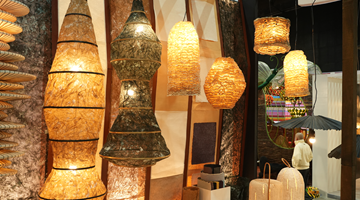
Rooted in Advocacy, Crafted for the Future
Going strong for 42 years, Manila FAME is a bold, seasoned trade show shaped by decades and transfor... Learn More
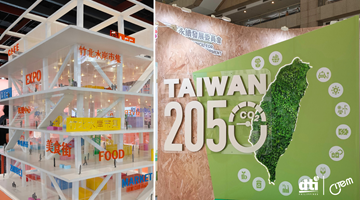
Learning the curve of sustainability: CITEM explores Taiwan’s SDG-driven industries
CITEM tracks sustainable practices in Taiwan’s transformative industries, and gets a glimpse of a... Learn More
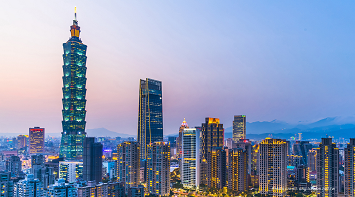
CITEM Market Sensing Mission to Taiwan to strengthen PH SDG competency
Making serious strides toward strengthening the country’s sustainability footprint, CITEM travels to... Learn More
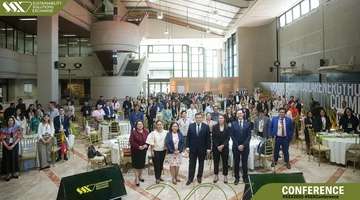
EU, PH push for green solutions in food industry at Sustainability Solutions Exchange 2025
Aiming to develop a sustainable Philippine food industry, the European Union (EU) and the Department... Learn More
